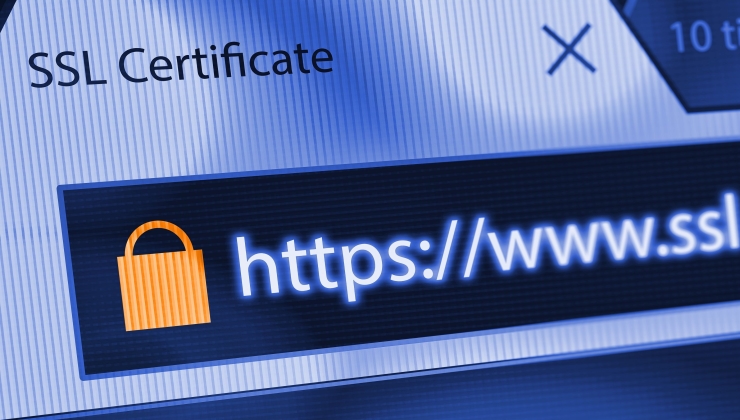In today’s digital landscape, website security is paramount. With cyber threats becoming more sophisticated, safeguarding sensitive information transmitted over the internet has become a priority for businesses and website owners. One of the essential steps in ensuring a secure online environment is purchasing and installing an SSL (Secure Sockets Layer) certificate. This article provides a comprehensive guide on how to purchase SSL certificate, why it’s important, and what factors to consider during the process.
Understanding SSL Certificates
Before delving into the purchasing process, let’s first understand what SSL certificates are and why they are crucial for website security. An SSL certificate is a digital certificate that encrypts data transmitted between a web server and a user’s browser. This encryption ensures that sensitive information such as login credentials, credit card details, and personal data remains protected from unauthorized access by hackers or malicious entities.
Why SSL Certificates are Important
SSL certificates play a pivotal role in establishing trust and credibility with website visitors. Here are some key reasons why SSL certificates are essential:
- Data Encryption: SSL certificates encrypt data, making it unreadable to anyone intercepting the communication, thus protecting sensitive information.
- Trust Indicators: Websites with SSL certificates display trust indicators such as a padlock icon and HTTPS in the URL, assuring visitors of a secure connection.
- SEO Benefits: Search engines like Google prioritize websites with SSL certificates, leading to improved search rankings and visibility.
- Compliance Requirements: Many industries and regulations mandate the use of SSL certificates to ensure data privacy and security compliance.
Steps to Purchase an SSL Certificate
-
Determine Your SSL Certificate Needs
Before purchasing an SSL certificate, assess your website’s security requirements. Consider factors such as the type of certificate (e.g., Domain Validated, Organization Validated, Extended Validation), the level of validation needed, and the warranty offered by the certificate provider.
- Protecting Sensitive Information
SSL certificates encrypt data transferred between a user’s browser and the website, ensuring that sensitive information such as credit card details, login credentials, and personal data remains secure from potential cyber threats like hackers and data breaches.
- Types of SSL Certificates
There are three main types of SSL certificates:
- Domain Validated (DV) SSL Certificates: Suitable for basic encryption needs, verifying domain ownership.
- Organization Validated (OV) SSL Certificates: Offer higher validation, verifying the organization’s legitimacy along with domain ownership.
- Extended Validation (EV) SSL Certificates: The most comprehensive validation level, providing a green address bar in browsers, indicating a highly secure connection.
Benefits of SSL
Enhanced Security and Customer Trust
SSL certificates not only protect data but also enhance website security. They establish trust with visitors by displaying trust indicators like padlocks and HTTPS in the browser’s address bar, signaling a safe browsing experience.
How to Purchase
When purchasing an SSL certificate, consider factors such as certificate type (DV, OV, or EV), validation level, warranty, compatibility with your website platform, and customer support offered by the certificate provider.
Installation Process
Steps to Install an SSL Certificate
- Generate a Certificate Signing Request (CSR) from your web hosting control panel.
- Purchase an SSL certificate and provide the CSR during the order process.
- Receive the SSL certificate files from the provider.
- Install the certificate files on your web server.
- Configure your website to use HTTPS.
-
SSL Certificate Renewal
Regular SSL certificate renewal is essential to maintain continuous website security. Most SSL certificates have a validity period (usually 1-2 years), after which they need to be renewed to ensure ongoing protection.
-
Choose a Reliable Certificate Authority (CA)
Select a reputable Certificate Authority (CA) to purchase your SSL certificate from. Look for CAs that offer a range of certificate types, excellent customer support, and competitive pricing.
-
Validate Your Domain/Organization
Depending on the type of SSL certificate chosen, you may need to undergo domain validation (DV), organization validation (OV), or extended validation (EV) to prove ownership or legitimacy.
-
Purchase the SSL Certificate
Once you’ve selected the SSL certificate and completed the validation process, proceed to purchase the certificate from the chosen CA. Ensure that the certificate is compatible with your web hosting platform.
-
Install and Configure the SSL Certificate
After purchasing the SSL certificate, you’ll receive the necessary files. Follow the provider’s instructions to install and configure the certificate on your web server. Test the SSL implementation to ensure a seamless and secure browsing experience for users.
Also Read more at WellHealthOrganic Buffalo Milk Tag
Conclusion
Purchasing an SSL certificate is a proactive measure to protect your website and build trust among visitors. By following the steps outlined in this guide and choosing the right SSL certificate for your needs, you can enhance website security and provide a safe environment for online interactions.

